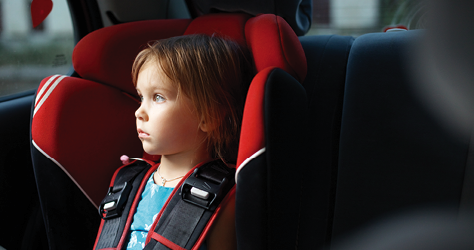What you need to know to get the best deal
Car hire companies don’t have the best reputations– especially abroad. But if you know what to look for, you can get a great deal.
At a glance
- It is often cheaper to buy a satnav than to hire one
- If you bring your own car seat, you will know it is suitable for your child
- Check the car over before you drive off so you don't get blamed for any damage that was already there

Don’t fork out for pricey extras
If you’re not a fan of map-reading (and who is in a foreign country?) a satnav is brilliant. Don’t be caught out hiring one for your travels, though – it’s cheaper to buy one and take it with you.
Satnavs that cover the UK and Europe sell for around £50-£60, and you’ll be able to use this once you get home. Hiring one for just a week abroad, on the other hand, can set you back as much as £70-£80.
It’s a similar story with kids’ car seats and booster seats. Lots of European hire companies charge as much as £75 for an infant seat, and £60 for a booster. And with lots of budget airlines allowing you to take these with you on the plane for free, it can mean a total waste of money.
Plus, you can’t be sure of getting a quality car seat if you hire one, so why take the risk?
Seek out your own collision damage waiver (CDW) insurance
The trick with car rental is to go for the most basic package available, then sort out any extras independently. It might sound like more effort, but most car hire companies make their money by charging ridiculous amounts for add-ons.
Collision damage waiver, or CDW insurance, is one that catches lots of families out. The hire price will usually only include insurance cover for a write-off or a major crash, so most sales people will try and convince you to pay for CDW.
What this does is cover the excess not covered by the basic insurance – usually between £500 and £1000. In other words, pay for CDW, and this cost will be waivered should you end up with any small scrapes or dents you’d otherwise have to fork out for.
What the car hire companies don’t tell you, though, is they charge around £150 per week for this excess insurance, whereas independent companies charge as little as £30.
Check the fuel policy
Always check what the fuel agreement is before you book. For example, lots of companies charge you for a full tank and then ask you to bring it back empty. This can be difficult if you’re staying somewhere really tiny, like Menorca or Ibiza.
Steer clear of these if you’re not planning on doing loads of driving. Similarly, if you’re asked to bring the car back with a full tank, always check whether the car takes petrol or diesel – if you accidently put the wrong type of fuel in, you could end up having to pay a fortune for the damage.
Think about the mileage you’re going to do
If you’re covering a large distance, look for the words ‘unlimited mileage’ on your policy. And if you’re going to be crossing any borders, make sure you check this is covered. Otherwise, you’ll end up paying a shedload for it on top.
Check the car over when you’re given the keys
This is probably the most important thing to remember about car hire. Before you put one foot in the vehicle, take a good look at the car – the bumper, the doors, the interior – everything. And take photographs of any scratches or dents, as well as writing them down on the rental agreement.
Before you drive away, get the person at the car hire desk to sign the agreement. That way, there’s no chance of you getting the blame for damage you didn't cause.
One last piece of advice? Always, always read the terms and conditions. So many people don’t, and while they’re small and boring, you’ll be thankful in the long-run if you spot something you’re not happy with.